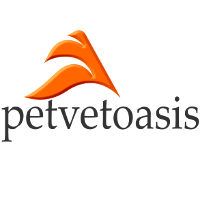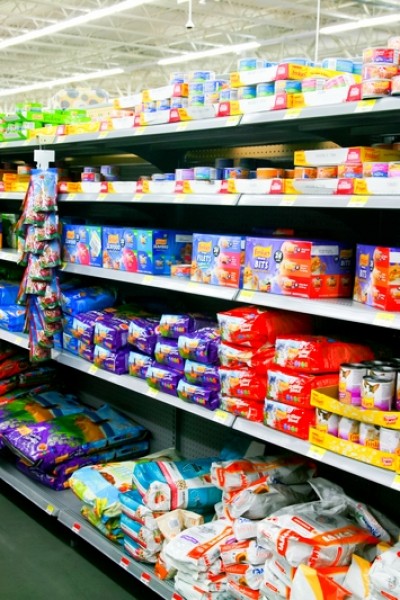Dog Nutrition
DOG NUTRITION FACTS
Dog nutrition is extremely important. Without proper puppy nutrition in the early stages of life, an animal will not develop properly and will be prone to further illnesses in the future. Proper dog nutrition will insure development of muscle and bone tissues so the puppy reaches adulthood in the best state possible.
Puppies require a very high level of protein for muscle and bone development. Not just visual development but the enlargement of all the internal organs, for adult functionality, requires a tremendous amount of energy. So a diet enriched with high quality protein, carbohydrates and fat plus vitamins will guarantee healthy development of the animal. Now a days there are as about many puppy diets as there are stars in the sky. Overall, I recommend: Hill’s Science Diet®, Royal Canin® and Iams®. All these diets have a high TDN (Total Digestible Nutrients). This means that more of the food ingested goes to the puppy’s development rather than undigested and passed in the stool. With diets, like everything else in life, you get what you pay for. Stick with the best and your pet will thank you.
DRY OR CANNED?
Overall, stick with dry food. When we are talking about dog nutrition, canned foods are usually richer in fats. Pets love canned food. Sort of like asking a human which he or she would prefer; a box of chocolates or a bowl of lima beans! Remember, dogs are pure carnivores; meaning they love meat NOT cereal or grains. That is hard wired into them from their ancestors. Eating JUST canned food will not promote healthy gum and teeth development. Dogs can not WaterPic® or floss their teeth so hard foods will naturally grind away tartar buildup on developing teeth.
What is possible is combining dry puppy food with its counterpart in canned food IN SMALL AMOUNTS. If a puppy is eating small bites Science Diet® and it is sticking its nose away from it, mix in a couple tablespoons of the canned Science Diet® puppy into the dry. Gradually, eliminate the moist or give a small amount of the moist food as a treat; sort of like a slice of pie for after dinner. Another trick is to squirt a small amount of Nutrical® over the dry food and mix that up. Also, adding a boiled eggOnly feed boiled eggs. Raw eggs contain a protein called avidin which will bind B-Complex vitamins that could lead to a deficiency in said vitamins. One raw egg will not hurt anyone but overtime it will. a day, not raw, will make the meal “yummier” plus the benefit of egg oils for skin luster. A very simple way to make dry food more palatable is to add a little water, heat it up and it will form a sort of gravy that dogs like. Never use cows milk as it will cause diarrhea in dogs since most dogs do not produce the digestive enzyme, lactase, to digest milk sugar (lactose).
FEEDING SCHEDULE: DOG NUTRITION AND DIET
A puppy’s nutritional needs vary from breed to breed and from individual to individual within a breed. We are all different but one can make several generalities regarding frequency of feeding. Puppies between the ages of 6 weeks to 4 months of age should be fed 4 times a day. A puppy from 4 months to 6 months of age should be fed 3 times per day. Any dog 6 months of age should be fed twice daily. Once most dogs are one year of age, one meal a day should suffice. There are exceptions to that rule. If a female is pregnant or the dog is intended to be a work animal or a hunting dog, caloric requirements will be higher so either an increased frequency or a performance diet might be needed.
WHEN DO I SWITCH TO ADULT FOOD?
Most puppies can be put on appropriate adult food at about one year of age. Again, there are exceptions. Puppies that are neutered at 6 months of age do not have the caloric needs of a dog that is pregnant. Neutered dogs are generally prone to obesity; particularly the female. These animals can be put on an adult diet at about 8 months of age.
Large dogs take much longer to mature, from a musculo-skeletal point of view, compared to a small breed. Large breeds of dogs from retriever size and up can be kept on a puppy formula for up to about 18 months of age before switching to an adult diet. The most important factor involving dog nutrition is that the individual is physically growing at an appropriate rate with an appropriate diet. Following this, you will usually succeed producing a good looking dog entering early adulthood.
THE IMPORTANCE OF WATER IN DOG NUTRITION
People worry so much about the solid component of eating but often overlook water. Water is crucial. We are all made up of about 80% water. Water is extremely important. It helps maintain our blood pressure, helps digest foods, keeps blood electrolytes at an appropriate level and aids in the elimination of waste via the kidneys (urine).
Water just does not come from a bowl of water sitting nearby but also from two other important sources. Water is also found in an animal’s diet plus there is metabolic waterBiochemically, foods and other nutritional items are broken down in the body (liver) and one of the by-products of this metabolism is water! Even though the amount produced is no where what an animal drinks every day, it is an important source of water to help satisfy a dogs physiological needs.. It is that combination of water from those three sources that help propel a puppy forward in growth.
Dogs love fresh clean water. Make sure the puppy is given fresh water throughout the day. If it is hot outside, throw in a couple of ice cubes. Dogs love cold drinks as much as we do! Puppies are like toddlers, in one sense, so make sure the water is in a non flippable container such as a ceramic water container. Puppies love playing with food and water bowls but that could become a mess over time!
SUMMING UP DOG NUTRITION
In my long medical career I have noticed how dog nutrition has changed over the years. Fads come, fads go. Back in the 80’s it used to be every puppy diet had to have lamb as a protein source. Now every dog on the planet is allergic to lamb! Used to be that dogs were put on an exclusive lamb diet due to food allergies. Not any more!
Today, there are millions of different diets that are available. Dog nutrition does not have to be complicated. Common today is the “all natural diet”. Food sources are natural animal byproducts rather than cereal based nutrition. The big take away point is THIS. I made several recommendations earlier but the most important factor is finding a puppy food that the animal likes and that is EASILY digestible; meaning a diet that does not cause the animal to vomit or have diarrhea. Puppies have an immature gastrointestinal tract. If your puppy thrives on such a particular diet don’t change it. Why fight city hall!
.



